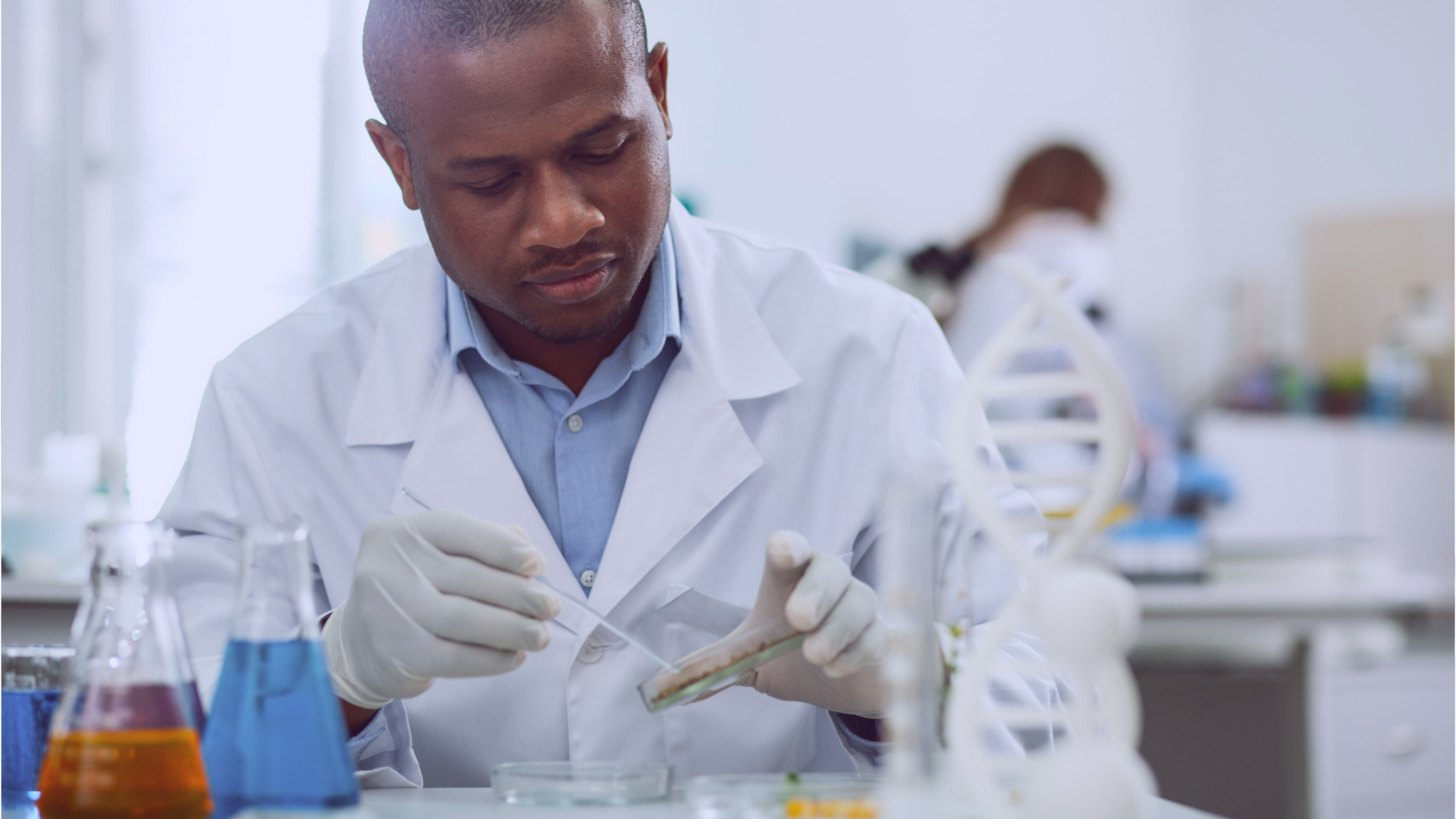Molecular & Cellular Biologists
Molecular Biologist, Research Scientist
 Select a military branch to see samples.
Select a military branch to see samples.
Biomedical Laboratory; Biomedical Laboratory, Biomedical Laboratory Science; Biomedical Laboratory, Blood Bank; Biomedical Laboratory, Clinical Chemistry; Biomedical Laboratory, Environmental and Industrial Hygiene Chemistry; Biomedical Laboratory, Hematology; Biomedical Laboratory, Microbiology; Biomedical Laboratory, Toxicologist
Biochemistry; Microbiology
No similar titles were found.
No similar titles were found.
Microbiologist; Physiologist
No similar titles were found.
What they do:
Research and study cellular molecules and organelles to understand cell function and organization.
On the job, you would:
- Maintain accurate laboratory records and data.
- Design molecular or cellular laboratory experiments, oversee their execution, and interpret results.
- Write grant applications to obtain funding.
Knowledge
Math and Science
- biology
- chemistry
Arts and Humanities
- English language
Education and Training
- teaching and course design
Engineering and Technology
- computers and electronics
Skills
Basic Skills
- using scientific rules and strategies to solve problems
- reading work related information
Problem Solving
- noticing a problem and figuring out the best way to solve it
People and Technology Systems
- thinking about the pros and cons of different options and picking the best one
- figuring out how a system should work and how changes in the future will affect it
Abilities
Verbal
- read and understand what is written
- listen and understand what people say
Ideas and Logic
- make general rules or come up with answers from lots of detailed information
- group things in different ways
Math
- choose the right type of math to solve a problem
- add, subtract, multiply, or divide
Visual Understanding
- see hidden patterns
Personality
People interested in this work like activities that include ideas, thinking, and figuring things out.
They do well at jobs that need:
- Innovation
- Achievement Orientation
- Intellectual Curiosity
- Cautiousness
- Integrity
- Attention to Detail
Technology
You might use software like this on the job:
Analytical or scientific software
- Minitab
- RasMol
Presentation software
- Microsoft PowerPoint
Graphics or photo imaging software
- Adobe Illustrator
- Corel CorelDraw Graphics Suite
Education
Education: (rated 5 of 5)
post-doctoral training or
bachelor's degree
usually needed
bachelor's degree
usually needed
Job Outlook
Below Average
New job opportunities are less likely in the future.
Explore More
- Biochemists & Biophysicists
- Bioengineers & Biomedical Engineers
- Bioinformatics Scientists
- Biologists
- Geneticists
You might like a career in one of these industries:
See more details at O*NET OnLine about Molecular & Cellular Biologists.






